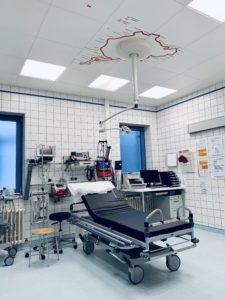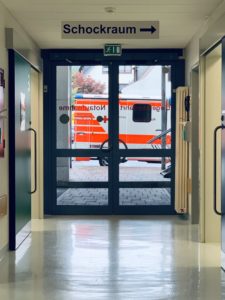When it goes properly wrong at the ‘Ring.
A wise old friend, now sadly departed, used to tell us it was always a matter of ‘when’ not ‘if’.
He was talking about having an accident on the Nordschleife, and his view was each additional lap was another roll of the dice and crashing was therefore inevitable. We used to disagree of course, firm in our belief that each lap finished was simply more experience and we were therefore better equipped to safely complete the next and so on.
Well he was right, and we were wrong.

The fact is, there are so many variables on the Nordschleife over a lap that accidents remain a stubborn possibility for the keen sport driver regardless of their personal skill.
You can tip the odds in your favour of course. By choosing to drive in fine weather only, by choosing quiet sessions over busy ones, less popular weekends and so on. You can choose an organised track day on the Nürburgring instead of a public session, employ a professional instructor – all worthy actions to reduce risk. But if, like us, you want to drive the Nordschleife in as many different conditions as possible, you have to accept the possibility of an accident.
Here, in this article, is not the place to discuss insurance. We will deal with that in another blog post. We don’t even want to discuss the costs of crashes at the Nürburgring, we can do that later and it’s well documented elsewhere on the web.

Instead we want to give you some practical advice as to what to expect if you’re injured in an accident on the Ring. When it’s all gone properly wrong.
* At the time of writing the UK has entered the transition phase of withdrawing from the EU and the EHIC card is still valid.
From the 1st January 2021 onwards, you should prepare for possible changes to your access to healthcare if you’re travelling to or from the UK.
In all instances, you should continue to buy comprehensive travel/medical insurance.
Check your insurance policy has the necessary healthcare cover to ensure you get any treatment you may need.
If you are unfortunate enough to be injured you will be cared for by the Nürburgring’s own medical teams in the first instance, and if it’s more serious you will be transferred to the hospital ‘Maria-Hilf’ in Daum. Click here for directions.
This is not meant to be an exhaustive account of every step you can expect. Just a few pointers that can really help you and your friends in an emergency.
Take care and enjoy your laps in the Green Hell, and remember – safety first!
Your DN team.